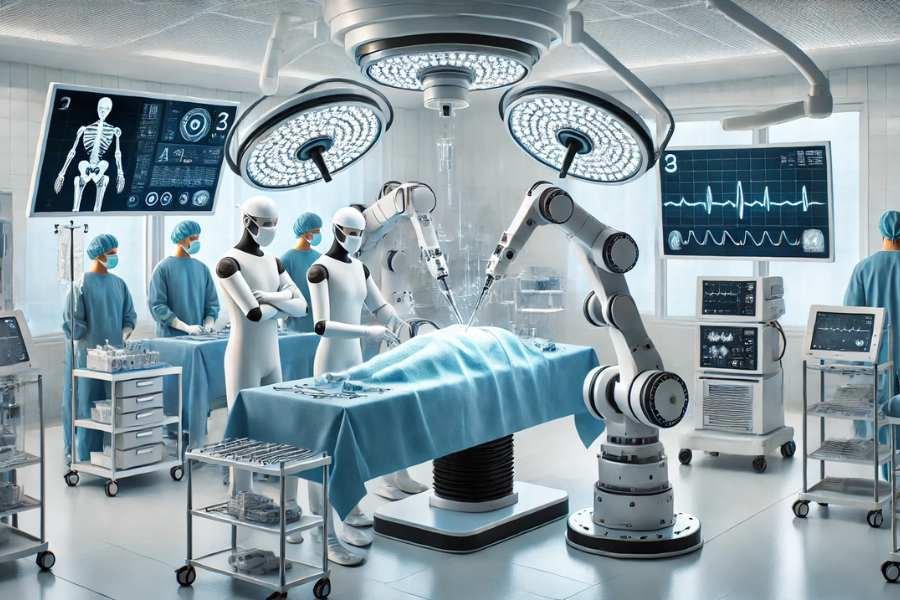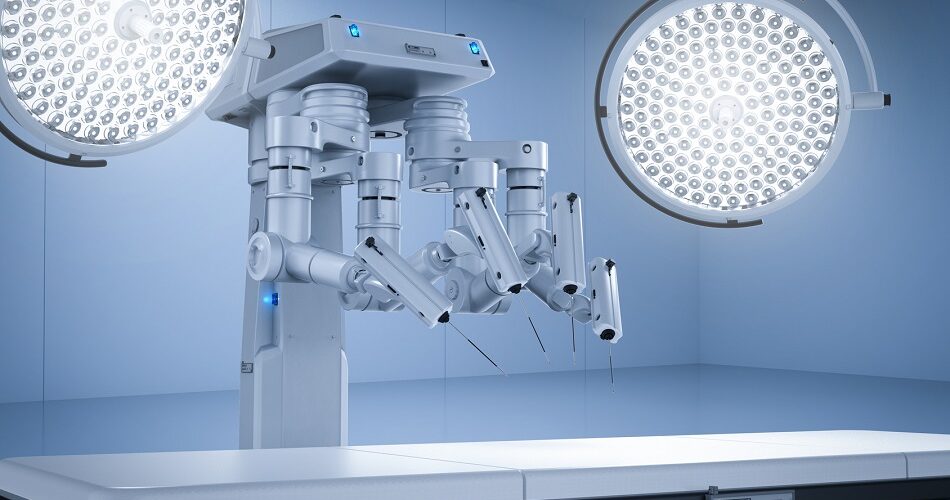AI in surgery is transforming medicine, with precision and efficiency to heal lives.
Surgery is a complex process where the result is related to certain aspects such as preoperative planning. Even the surgeon’s experience or real-time decision-making.
AI currently allows us to process information and activate cognitive functions that are far above those of human logic and reasoning. Thus, algorithms and computer systems are at hand in daily practice.
Innovation will require adapting operating room practices to a constantly changing clinical reality. For this reason, artificial intelligence can provide an appropriate basis for medical decision-making.
The AI tool could be used to increase the exchange of knowledge by collecting data in large blocks to generate a database with important information. Likewise, surgeons can evaluate this data based on the results. Video databases could use computer vision to capture rare cases or anatomy, allowing information to be added or integrated into all phases of surgical procedures.
The spread of AI-based surgical techniques can give every surgeon the ability to improve the quality of overall surgical care.
Predictive models could help in making preoperative decisions with sufficient scientific certainty. Thus, more and more jobs are applying artificial intelligence to assess complex problems.
Benefits:
- Greater precision: AI can help surgeons perform more precise and delicate movements, reducing the risk of errors and complications.
- Less invasive: AI can facilitate the performance of minimally invasive procedures, reducing pain, scarring, and recovery time for patients.
- Greater efficiency: AI can help surgeons plan and execute procedures more efficiently, reducing operative procedure time and hospital costs.
- Better outcomes: AI can improve clinical decision-making and procedural accuracy, which can lead to better patient outcomes.
- Procedure times, occupancy in the recovery room, and even cases with a high probability of cancellation on the day of surgery can be more accurately predicted.
- AI can control surgical robots to perform accurate and less invasive surgical procedures. For example, surgical robots can help perform prostate surgeries with greater precision and fewer side effects.
- The evolution of surgical robots continues with research and development of more advanced and versatile systems.

Models used:
- Da Vinci Surgical System: High-precision surgical robot for prostate, gynecological, and cardiac operations.
- Senhance Surgical System: This surgical robot is used in abdominal, gynecological, and urological areas.
- Versius Surgical System: This is a surgical robot that is being used in multiple specialties, including general, gynecologic, and urologic surgery.
- Mako Robotic-Arm Assisted Surgery System: This is a surgical robot used in orthopedic surgeries, particularly hip and knee replacement.
- HUGO™, allows for gynecologic, urologic, and gastrointestinal surgeries. It can also be used in cardiovascular and general procedures, among others.
- SHURUI Uniportal Nitinol Surgical Robot, this robot works with Nitinol to move its joints.
- Remote Telesurgery, most of which are done by da Vinci surgical robot.
The integration of artificial intelligence (AI) into the field of surgery has generated many opinions about the possible eventualities and benefits of this technology. Now, AI has the potential to improve the accuracy and effectiveness of operations. However, it also includes concerns about specialist independence and patient safety.
Technology continues to advance. However, it is important to address current challenges and limitations. Such as: cost, system regulation, and ethics to ensure that AI is used safely in surgery.
Therefore, Artificial Intelligence plays an increasingly important role in surgical procedures in the future. That is why AI is likely to continue to transform the field of these procedures in the coming years.
In addition, research has shown that technology and surgery harmonize with the patient’s evolution.
I invite you to read another article of interest:
Phonophobia: Lose the fear of noises
Font:
https://www.nefrologiaaldia.org/es-articulo-artificial-la-nueva-inteligencia-su-609









